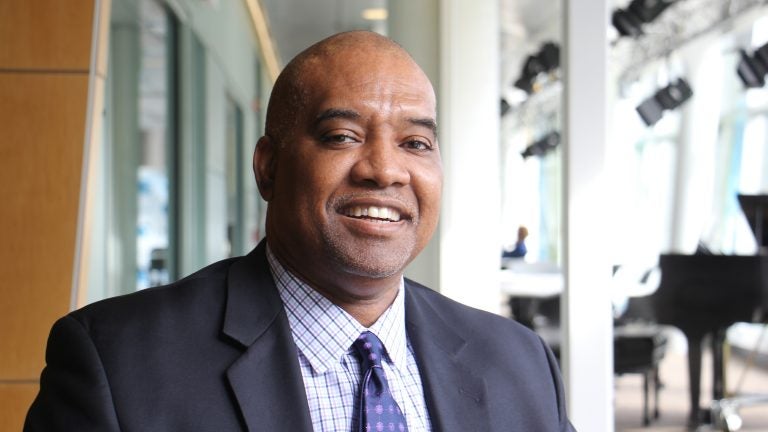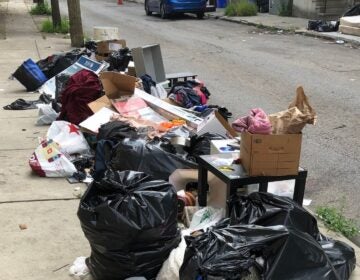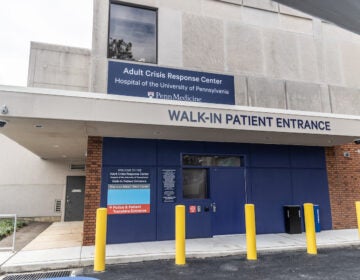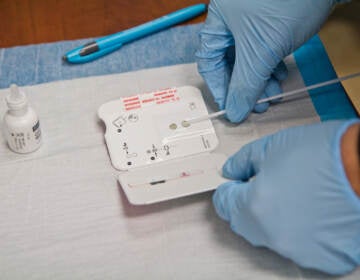Philadelphia has momentum to combat opioid crisis, behavioral health chief says
As the opioid crisis affects the whole nation, a Philadelphia expert offers strategies to address what's being cast as a problem of supply, addiction, and treatment.
Listen 0:00
David Jones is head of Philadelphia's Department of Behavioral Health. (Emma Lee/WHYY)
The opioid crisis has no borders. It’s crippling states, cities, and towns across the country. But experts say there are numerous macro and micro ways of addressing what’s being cast as a problem of supply, addiction, and treatment.
Last month, Philadelphia’s Opioid Task Force announced 18 recommendations to combat the crisis. The Department of Behavioral Health and Intellectual Disabilities Service, under newly named commissioner David T. Jones, is in charge of implementing them.
The city has a long way to go, Jones said, but it now has real momentum as it looks at innovative ways to focus on well-being.
For example, the CUES — Comprehensive User Engagement Sites — program has cropped up in Vancouver, British Columbia, and Sydney, directing addicts to sterile injection equipment, as well as treatment and social services.
These safe-injection sites are bound to incite difficult conversations should Philadelphia decide to follow suit, Jones said.
“We recognize there will be numerous conversations that will need to be had with people in the community about if there’s a decision to site CUES, where they will be sited, how they will be sited, and public safety concerns needs to be addressed,” he said.
Another avenue toward well-being incorporates the recovery house — or sober living house — model. Substance abusers on a path of sobriety frequent the facilities where recovery is supervised and counseling services are available in a group-home setting.
“One of the things that we’ve done is … worked hard to identify certified recovery specialists,” Jones said. “These are people who are in a place, in terms of their own recovery, where they are really able to help another individual who may be really struggling with their substance use disorder.”
The growing recovery house industry is not regulated in Pennsylvania.
“Within the department, we oversee approximately 17 recovery houses, and they are held to a certain standard in terms of both the condition and what’s expected around treatment,” Jones said. “Beyond that, the Pennsylvania Association for Recovery Residences also has pretty strict standards on what a recovery house should look like, how it should operate, and how it should actually treat the individuals that reside there.”
The city has identified a couple of bad players.
“We have created thresholds and standards ourselves around what we think a good recovery house looks like, and we’ve shared those,” he said. “We’ve also given some funding to support certain recovery houses to make sure they adhere to and are able to abide by those standards.”
You can hear more of Jennifer Lynn’s conversation with David T. Jones through the audio link above.
WHYY is your source for fact-based, in-depth journalism and information. As a nonprofit organization, we rely on financial support from readers like you. Please give today.





